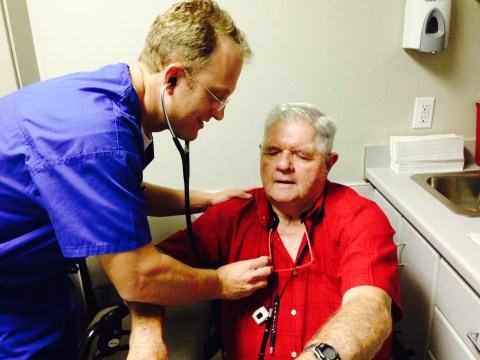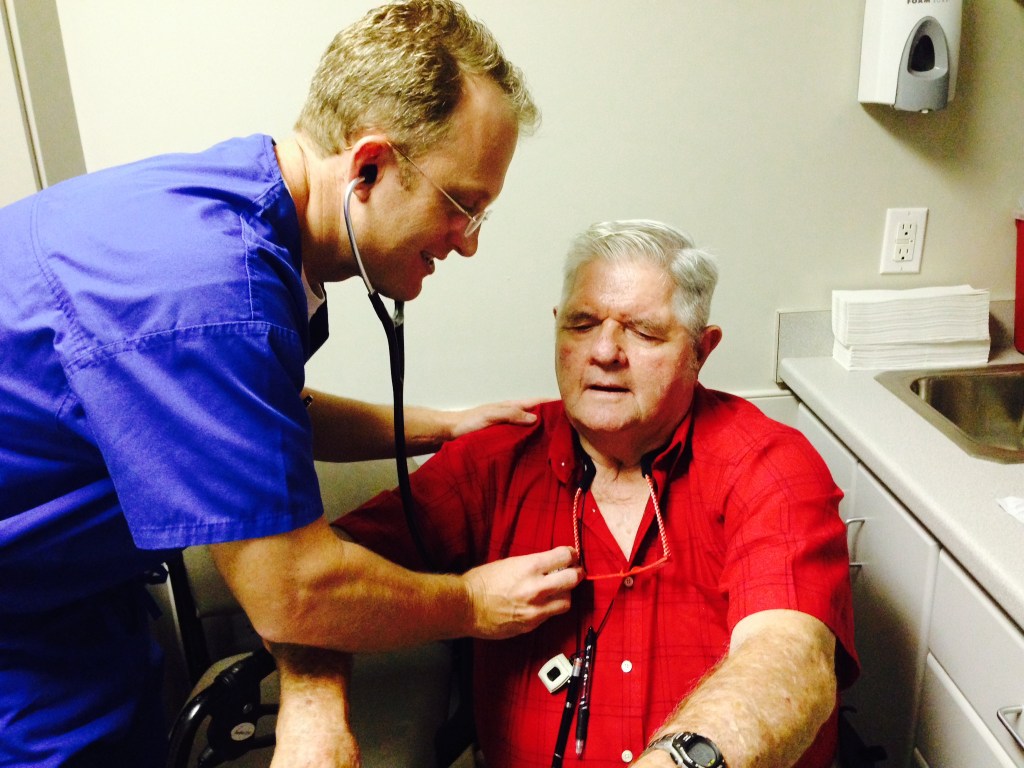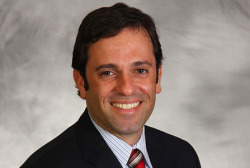
Months after she first read it, Vera Brown of Augusta is still upset about a letter she received from her health insurer.
UnitedHealthcare wrote to notify her that it was dropping Dr. Sean Lynch, her physician, from its Medicare Advantage doctor network.
“I’ve been with Dr. Lynch for years,’’ says Brown, 67, a registered nurse. “He treats me like his mother.”
Lynch, an Augusta family physician, says dozens of his patients got similar letters. “For many reasons, it has been a disaster, for us and our patients,” says Lynch.
Brown and Lynch both say they have not received an adequate reason from United as to why the change took place.
UnitedHealthcare’s action in Georgia came after it dropped physicians in several other states from its private Medicare Advantage plans. Overall, thousands of members were affected.
The insurer tells GHN that the Georgia markets affected by the Medicare action are Atlanta, Augusta and Columbus, and that only about 10 percent of doctors in its Medicare network were dropped.
“We do regret any inconvenience to our members,” says Gregg Kunemund, regional vice president for United’s Medicare business in Georgia.
The United move is part of an accelerating trend of health insurers offering consumers more limited choices of medical providers. The resulting health plans have become known generally as “narrow networks.”
Complaints about limited choice of doctors and hospitals in health plans — in Georgia and across the nation — arose during the rollout of the Affordable Care Act exchanges a year ago.
The Washington Post recently reported that about 70 percent of health plans sold on the ACA’s marketplaces this past year had narrow or ultra-narrow networks, according to McKinsey and Co. The consulting firm defined “narrow” as excluding at least 30 percent of an area’s largest hospitals.
Narrow networks were increasingly being used before the ACA was enacted, but they’ve become more prevalent under the health reform law, the Post added.
Industry officials say the changes are partly about holding down costs, a prime consideration for consumers who are concerned about affordability (and a major goal of the ACA itself).
“We’re trying to build networks that balance quality and cost,’’ says Graham Thompson, executive director of the Georgia Association of Health Plans, an industry group.
Kim Holland, executive director of state affairs at the Blue Cross Blue Shield Association, told Politico earlier this year that “every indication that we’ve received . . . from think tanks, physicians and consumer advocacy groups, is that the most important factor for individuals purchasing coverage through the exchange is price.”
Traditional trade-off: Choice vs. cost
The interplay between access to providers and costs has existed for years in the health insurance market.
“People have to recognize it’s a trade-off, and I’m not sure they do yet,” Matt Eyles, an insurance expert at the Avalere Health consulting firm, told Politico. “Broader access comes at a cost, and what’s the right balance between access and cost is an age-old question in health care.”
UnitedHealthcare, meanwhile, disputes the characterization of its Medicare Advantage physician network in Georgia as narrow. “We feel we have an adequate network,’’ United’s Kunemund says. “We want to make sure our members get great care.”
Geography, quality and efficiency are among factors that have influenced the company’s decisions, he adds.
The decision has no impact on the retiree members of the State Health Benefit Plan who will be moving to United’s Medicare Advantage plan next year, Kunemund says.
Still, the dislocation for current patients can be jarring, says Lynch, the Augusta physician.
“Most of my patients were assigned to an 82-year-old doctor,’’ says Lynch, who is 44. “No offense to this doctor, but how does it help my patients who have been sent to an 82-year-old doctor who’s about to retire?”
Lack of transparency
It’s difficult to determine how many Georgians have been affected by narrow networks.
But problems with Georgia’s ACA exchange networks became apparent last fall, during the exchange’s first open enrollment period.
“Provider directories were inaccurate or not up to date, or people were having problems finding a provider,’’ says Cindy Zeldin of the consumer group Georgians for a Healthy Future, which has supported the ACA.
If limited networks are done right, she says, ‘they’re not necessarily harmful to consumers.” And insurers have a legitimate argument about keeping costs down, Zeldin says.
Health insurers may be looking to drop what they perceive as high-cost doctors or hospitals, or they may be trying to negotiate the paying of lower fees to medical providers, she says.
“It’s not transparent,’’ Zeldin says. “It’s hard to get a handle on how these strategies are designed.”
Patients are often left confused over who’s in and who’s out of a network, says Dr. James Barber, an orthopedic surgeon in Coffee County. “There’s a lack of transparency for consumers.”
“Eventually, narrow networks will get so narrow that patients will revolt, just like they did with the HMOs in the 1990s.”
Barber says he’s concerned that the fear of being excluded from a narrow network may force physicians to accept lower reimbursements.
Plan options will increase for 2015
The state department of insurance has been tracking the issue of how adequate the exchange health plans’ medical provider networks are.
“We’ve been getting complaints from many Georgians,’’ spokesman Glenn Allen told GHN in June. Those consumers have either lost a longtime physician or a trusted hospital by enrolling in an exchange plan, or have not found enough physicians in their network, he said.
Thompson, of the Association of Health Plans, points out that Georgians will have more choices of insurers in the ACA exchange for the upcoming year, both in metro Atlanta and other areas of the state.
Georgia’s largest physician organization, though, says narrow networks “threaten the individual and trust-based relationship that physicians have with their patients.”
“Narrow networks also undermine the economic viability of the medical profession, which employs a lot of Georgians and which makes a significant contribution to the state’s economy,’’ says Donald J. Palmisano Jr., executive director of the Medical Association of Georgia. He adds that the increase of these networks “will exacerbate the shortage of physicians in Georgia.”
“MAG believes that patients should have the freedom to see the physician of their choice as long as the physician is willing to participate in the patient’s health insurance network,’’ Palmisano adds.
John Crew of Strategic Healthcare Partners, which consults for more than 30 hospitals, 600 physicians, and 26 behavioral health centers in Georgia, says he fears that all insurance companies are using this tactic to drive down reimbursement to medical providers.
He says narrow networks may favor those physicians who are employed by hospital systems. They also could exclude rural physicians, Crew says.
Zeldin, meanwhile, says that consumers should shop around as they review health plans, and ask for up-to-date provider directories from insurers.
Meanwhile, in Augusta, Vera Brown is changing her Medicare coverage so that she can keep Dr. Lynch as her physician.
“I’m going to stay with Dr. Lynch, whatever plan I go on,’’ Brown says. “When you get older, you don’t want to do all this flip-flopping. It’s not good for older folks.”




